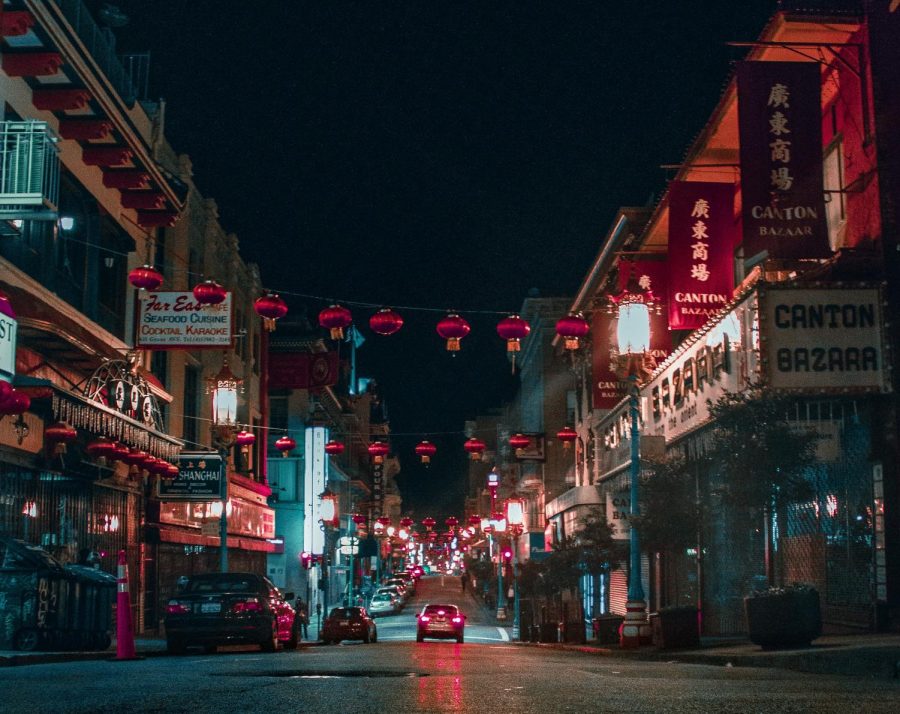In the Asian Community, Hate Crimes Taint Lunar New Year
Lunar New Year is met with the reality of a spike in anti-Asian American hate crimes.
San Francisco Chinatown
February 19, 2021
A 91-year-old man shoved onto the street. A Filipino man slashed across the face on the subway. A Vietnamese woman robbed of $1,000 intended as gifts to celebrate Lunar New Year. After the COVID-19 pandemic became widespread, Asian-American hate crime rates skyrocketed. More recently, the Asian-American community has seen a terrifying resurgence of hate crimes in their ethnic enclaves all across the country. As the Asian-American community just celebrated Lunar New Year, the welcoming of a new season has been met with a trepidation and fear for their own lives, and for their family.
After COVID-19 developed and spread from China to America, many around the world began to express anti-Chinese, and more broadly, anti-Asian sentiments. Former President Trump’s labeling of the virus as the “China virus” was seen by many Asian-Americans as overt and dangerous racism, indicating that Chinese people should bear the blame of the virus’ creation. Hate crimes against Asians skyrocketed after.
In particular, Asian American businesses and ethnic enclaves were hit hard, facing racist stereotyping and bearing the blame for the effects of the virus. Of course, it was based on nothing but racist stereotyping and ignorance. Large Chinatown communities all across the country, which many families depended on for their livelihood, shuttered and closed down, losing business that were much needed in a time of economic crisis.
Now in 2021, there was a resurgence of hate- crimes against Asian elders. In the San Francisco Chinatown area, in particular, a Thai elderly man named Vicha Ratanapakdee was shoved to the street from behind, where he died from injuries sustained only days later. The man arrested for this hate crime has also been accused of several other assaults of Asian elders in the Oakland Chinatown area. The Oakland Chinatown Chamber of Commerce president also shared that over 20 attacks on Asians had happened in the second half of December.
As the Asian community approached Lunar New Year, one of the most celebrated and beloved holidays for Asians, a season for good luck and fortune was subdued by the dangerous string of targeted attacks. More significant is the fact that elders, so treasured and revered in Asian culture, were being preyed upon and targeted.
Many activists have spoken up against these racially-motivated attacks, however, it wasn’t until famous Hollywood celebrities like Paris Hilton and Daniel Dae Kim raised awareness that important media outlets began to cover the material. For many Asians, the delayed response to a serious threat on their lives, motivated by racial fears and anger, is a reminder of the neglect and lack of justice they have endured throughout history. Many were reminded of the murder of Vincent Chin, a young Asian-American man in the 80s who was brutally attacked and killed by two white men. Both of the men walked free, without any charges, supported by a system of white supremacy.
To this day, most of the American history curriculum fails to remember and teach about this brutal and extremely significant attack. So these attacks on Asian elders, while not a new form of racism, are part of a larger, more terrifying experience; that racially motivated acts of violence will go unnoticed, ignored, and unrecognized.
Russell Jeung, who helped create StopAAPIHate.org, an organization referenced in multiple articles that help report Asian hate crimes, spoke out. He states, “The recent attacks on Asian American elderly have been horrific and deeply felt in our community. During Lunar New Year’s, the first thing we do is greet and bow to our elders; these signs of respect show how much we love and honor them. To see graphic footage of sense violence, then, angers and deeply disturbs many of us.”
Many activists and Asian-Americans are calling for an end to the lack of attention the media shines on Asian hate crimes. There seems to be a shift in the perspective of Asian-Americans, from submission to the model-minority myth, of docility to protest. Jeung writes, “In response, I’ve seen the Asian American community rise up to take strong stands against both the violence we’ve just witnessed and the racism we’ve experienced over the past year. In social media and in rallies, we’ve come together to call for an end to the violence. We’ve also sought to build Asian/Black solidarity to promote peace and safety for all our neighborhoods.”
In this time of extreme spikes in anti-Asian American hate crimes, many are calling for political action from Congress, along with asking more media outlets to cover these crimes to raise awareness.


